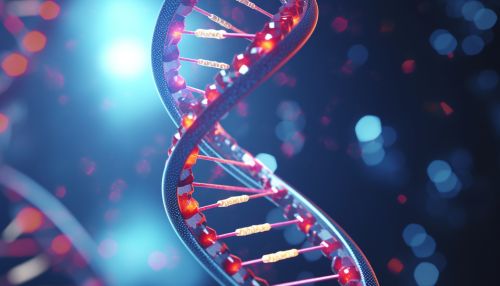Biomarkers
Introduction
Biomarkers, or biological markers, are measurable indicators of some biological state or condition. They are often used in clinical trials, where they serve as indirect measures of disease progression or response to therapeutic intervention. Biomarkers can be specific cells, molecules, genes, or hormones. They can also be changes in the body's electrical or acoustic signals, or in specific regions of the brain or body.


Types of Biomarkers
Biomarkers can be classified into different types based on their application and the biological systems they reflect.
Diagnostic Biomarkers
Diagnostic biomarkers are used to identify a disease or condition. They can be used to detect diseases at an early stage, even before symptoms appear. Examples include the prostate-specific antigen (PSA) for prostate cancer and the human chorionic gonadotropin (hCG) for pregnancy.
Prognostic Biomarkers
Prognostic biomarkers provide information about the likely course of a disease in an individual. They can help predict a patient's outcome, regardless of treatment. For instance, certain biomarkers are associated with aggressive forms of cancer that are likely to recur after treatment.
Predictive Biomarkers
Predictive biomarkers are used to identify individuals who are likely to respond to a particular treatment. They can help guide the selection of therapies in diseases such as cancer, where treatment is often tailored to the individual patient.
Pharmacodynamic Biomarkers
Pharmacodynamic biomarkers are used to understand the response of a biological system to a drug intervention. They are often used in early-phase clinical trials to assess whether a drug is having its intended effect.
Biomarkers in Disease Diagnosis and Management
Biomarkers play a crucial role in the diagnosis and management of various diseases. They are particularly important in conditions where symptoms alone are not sufficient to make a diagnosis.
Cancer
In oncology, biomarkers are used for early detection, diagnosis, prognosis, and prediction of response to therapy. For example, the presence of certain mutations in the BRCA1 or BRCA2 genes can indicate a higher risk of developing breast or ovarian cancer.
Cardiovascular Diseases
Biomarkers such as troponin and brain natriuretic peptide (BNP) are widely used in the diagnosis and management of cardiovascular diseases. Elevated levels of these biomarkers in the blood can indicate a heart attack or heart failure, respectively.
Neurological Disorders
In neurology, biomarkers are used in the diagnosis of diseases such as Alzheimer's and Parkinson's. For example, decreased levels of a protein called beta-amyloid in the cerebrospinal fluid can indicate Alzheimer's disease.
Challenges and Future Directions
Despite their potential, the use of biomarkers in clinical practice faces several challenges. These include the need for validation, the lack of standardization in measurement techniques, and the need for a better understanding of the biological relevance of many biomarkers.
Looking ahead, advances in technologies such as genomics and proteomics are likely to lead to the discovery of new biomarkers. These could provide insights into disease mechanisms and offer new targets for therapy.
